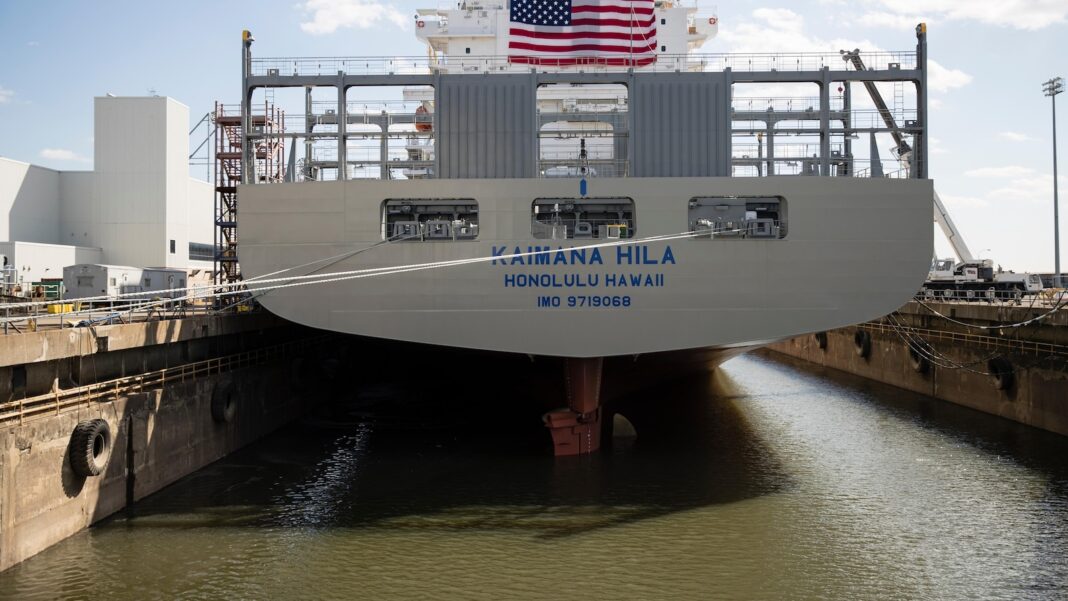China Targets Hanwha Ocean Amid Trade Tensions
Overview of the Ban
In a significant escalation of trade tensions, China’s Commerce Ministry recently imposed a ban on Chinese companies engaging with five subsidiaries of the South Korean shipbuilder, Hanwha Ocean. This move is a direct response to U.S. President Donald Trump’s ongoing efforts to revitalize American manufacturing, particularly in the shipbuilding sector. The ban signifies China’s intent to counter what it sees as external pressures on its maritime industry.
Investigating U.S. Actions
Alongside the ban, China announced an investigation into the U.S. probe concerning its growing dominance in global shipbuilding. The Chinese government views the U.S. inquiry as a direct threat to its national security and an affront to its shipping industry. The investigation notably highlights Hanwha’s role in this contentious standoff.
As part of this conflict, the U.S. Trade Representative initiated a Section 301 trade investigation back in April 2024. The aim was to examine the implications of China’s strength in the shipbuilding arena, which the U.S. deems detrimental to American businesses.
Repercussions for Hanwha Ocean
The repercussions of these sanctions have already hit Hanwha Ocean hard, with shares plummeting over 8% on the South Korean stock market following the announcement. In a statement, the company acknowledged awareness of the ban and indicated that it was closely assessing how this could impact its operations.
The five sanctioned entities include:
- Hanwha Shipping LLC
- Hanwha Philly Shipyard Inc.
- Hanwha Ocean USA International LLC
- Hanwha Shipping Holdings LLC
- HS USA Holdings Corp.
A Renewed Trade War
This latest development suggests an unraveling truce in the ongoing trade war between the United States and China. President Trump recently threatened a new 100% tariff on imports from China, expressing frustration over China’s new export controls on rare earth materials, further complicating relations.
Amidst these tensions, doubts have emerged about scheduled meetings between Trump and Chinese leader Xi Jinping later this month. However, Beijing reported that working-level discussions between the two nations were ongoing, indicating a complex web of diplomacy despite escalated hostilities.
Strengthening U.S.-South Korea Ties
The imposition of these restrictions comes at a time when South Korea and the United States are reinforcing their partnership in shipbuilding as a countermeasure to China’s global dominance. Notably, Hanwha has been proactive in this initiative; in late 2024, the company acquired the Philly Shipyard in Pennsylvania for $100 million. Additionally, it announced plans to invest $5 billion in developing new docks and quays, supporting U.S. efforts to enhance its competitive edge in shipbuilding.
Last year, Hanwha Ocean also secured significant contracts with the U.S. Navy for maintenance, repair, and overhaul services for naval vessels, highlighting its growing influence and commitment to the American market.
New Port Fees: A Tit-for-Tat Strategy
Another facet of this trade conflict is the mutual imposition of new port fees by both the U.S. and China. These fees were set to take effect on the same day as China’s ban, symbolizing a circular retaliatory strategy between the two nations. Countries or companies linked to U.S. interests and entities are now subject to these fees, which mirror similar charges placed on Chinese vessels by the U.S.
Assessing U.S. Maritime Position
Despite the rhetoric and chaos, it’s essential to note that U.S. businesses only account for a mere 2.9% of the global fleet ownership by capacity and a scant 0.1% of overall shipbuilding tonnage. Trump’s larger strategy aims to build a robust manufacturing base within the U.S., seeking to reclaim the maritime industry for American companies.
In a strategic pivot, Hanwha Ocean signaled its intention to withdraw from a joint venture in China as of May, indicating a reorientation of its business strategy toward more stable and supportive markets.
Conclusion
The stakes in this trade standoff are incredibly high, with financial implications for companies like Hanwha Ocean and broader ramifications for international trade dynamics. As the U.S. strives to reinforce its maritime capabilities, China remains vigilant, ready to counter every strategic move. The unfolding situation will be one to watch as it affects not only the shipbuilding industry but also the future of U.S.-China relations in an increasingly interconnected world.



